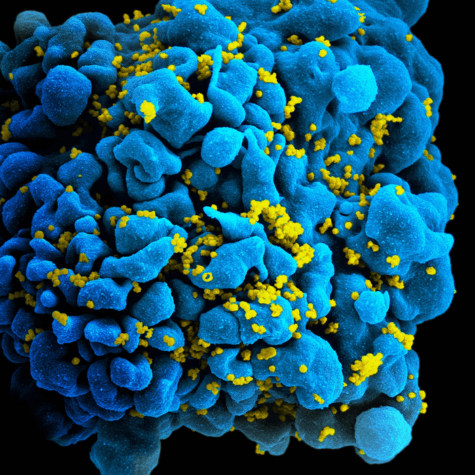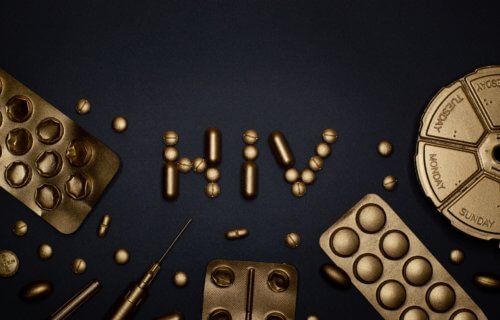BETHESDA, Md. — Two HIV-positive adults were able to control their viral loads even after they stopped taking drugs, a new study reveals. The patients, who had been on HIV treatments for several years, developed HIV-specific immune cells that were able to kill virus-infected cells.
Experts warn that there could be dangers of HIV “superinfection” when a person contracts a new strain of HIV, which can remain alongside the original strain of the virus.
Typically, when a person tests positive for HIV and goes on effective treatments, it lowers the level of HIV in the blood. When the levels are extremely low, below 200 copies of HIV/ml of blood, doctors consider the virus undetectable. At that stage, HIV cannot be passed on sexually. However, this currently means that HIV patients must stay on life-long antiretroviral therapy (ART) that can cause some side-effects like fatigue, weight gain, and loss of bone density.
Virus-free for years
In the study, investigators monitored two adults who began ART soon after acquiring the virus and continued with treatment for more than six years — until the viral load became undetectable. When the patients stopped taking their medication, the investigators monitored the timing and size of the viral rebounds, as soon as the amount of HIV in the blood became undetectable.
One patient was able to suppress the virus with intermittent rebounds for nearly three-and-a-half years, at which point he began taking ART again without telling the other researchers. The other patient was able to completely suppress HIV for nearly four years without medication, at which point the virus rebounded dramatically because the individual became infected with a new strain of HIV — a superinfection.
The special immune cell that can defeat HIV

In the first participant, scientists found high levels of HIV-specific immune cells called CD8+ T cells that can kill virus-infected cells, indicating that different mechanisms of control were at work in each person.
The researchers also found that the second participant, who had a weaker CD8+ T cell response against HIV, had a very strong neutralizing antibody response throughout the follow-up period until the sudden viral rebound.
“This suggests that neutralizing antibodies may have played a significant role in facilitating near-complete HIV suppression in this individual until he newly acquired a different strain of the virus. To avoid the emergence of viral resistance and prevent potential misinterpretation of scientific data in studies like this one, it is important to conduct routine antiretroviral drug testing of people with HIV who halt treatment for extended periods,” says Dr. Tae-Wook Chun, chief of HIV Immunovirology at the National Institute of Allergy and Infectious Diseases, in a media release.
“In addition, we identified HIV superinfection as a potential cause of sudden virologic breakthrough in people with HIV who halt treatment, especially when the breakthrough occurs after a prolonged period of virus suppression.”
Moving closer to a cure?
“Scientific endeavor has enabled us to come far in HIV. Treatments can now give people a normal life expectancy and prevent the virus from being passed on. It’s now even possible to take the drug PrEP to protect ourselves from acquiring HIV,” adds Hannah Ward, director of policy at the National AIDS Trust charity in the United Kingdom, in a statement to SWNS.
“But there are still unanswered questions and we are yet to identify a workable vaccine or cure. This isn’t something that will happen overnight. But we welcome the opening up of new avenues of study, such as this one, that can offer potentially unique opportunities to further enhance our understanding of HIV and how it affects the body. Such new understanding may lead to more innovations in the future and we will watch with interest.”
The findings appear in the journal Nature Medicine.
South West News Service contributed to this report.
